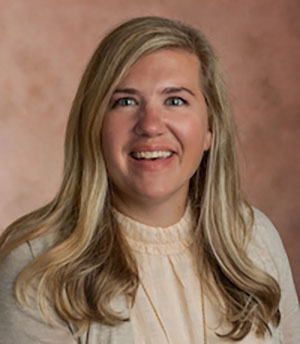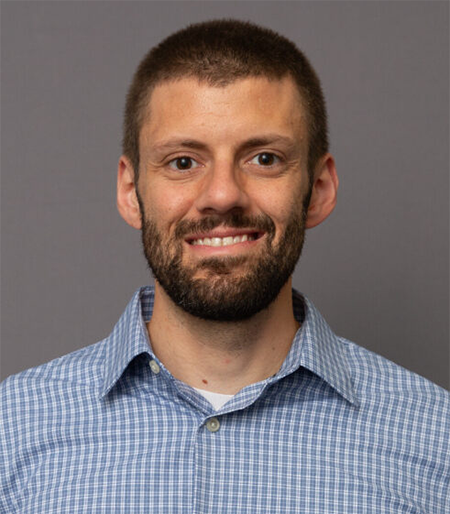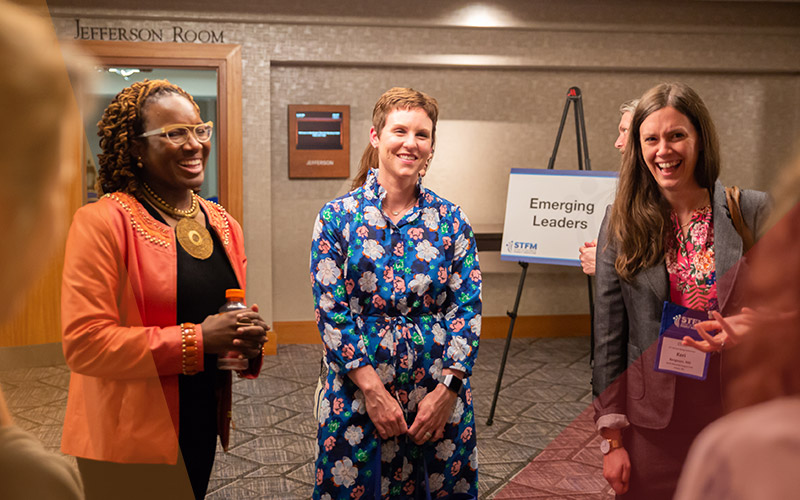

Kari Beth Watts, DO, Chair
Western Michigan University
Dr Watts is a family physician with the Western Michigan University Department of Family and Community Medicine's Family Medicine Residency Program-Battle Creek. Dr Watts is a graduate of the University of Michigan. She earned her medical degree from A.T. Still University Kirksville College of Osteopathic Medicine in Kirksville, MO. She completed her family medicine residency with the University of Illinois at Peoria. Her research interests include osteopathic manipulative treatment and racial disparities in maternal health outcomes.

Gregory Castelli, PharmD
University of Pittsburgh
Dr Castelli is an associate professor in the Department of Family Medicine at the University of Pittsburgh School of Medicine, where he serves as the director of Academic and Clinical Pharmacy and co-lead for the Interprofessional Education Thread. He completed the STFM Emerging Leaders Fellowship in 2019. Dr Castelli earned his PharmD from Wilkes University and completed residency and fellowship training at UPMC St. Margaret. He previously held positions as a clinical assistant professor at West Virginia University, where he established a primary care pharmacist practice in the state’s first PCMH. From 2016–2023, he directed the PGY1 Pharmacy Residency and Faculty Development Fellowship at UPMC St. Margaret. Committed to faculty development and mentorship, Dr Castelli has fostered the growth of residents and healthcare providers, leading discussions on essential academic skills and facilitating projects in a collaborative environment. He is eager to enhance the Emerging Leaders Fellowship by integrating feedback from past participants and exploring innovative workshops and leadership activities.

Briana Money, DO
Banner North Colorado Family Medicine
Dr Money is the associate program director and designated institutional official at the Banner Health North Colorado Family Medicine Residency Program and North Colorado Medical Center in Greeley, CO. She completed her residency at North Colorado Family Medicine, where she also served as a co-director of the Leadership Track. Dr Money founded a leadership program for residents and fellows within the American Medical Women’s Association and has held various leadership roles, including on the STFM Women in Family Medicine Collaborative Steering Committee. A graduate of the Costin Institute for Medical Educators, her academic interests include leadership, mentorship, residency programming, and curriculum development.

Astrud S.A. Villareal, MD
University of Texas Southwestern Medical Center
Dr Villareal is an assistant professor and serves as one of the associate program directors in the UT Southwestern Department of Family and Community Medicine Residency Program as well as the medical director of the Parkland Residency Clinic site. She completed her residency at UT Southwestern Family and Community Medicine, serving as Chief Resident during her third year and earning distinctions in Community Medicine and Global Health upon graduation. She has held roles in local and statewide organized medicine groups. A graduate of the STFM Emerging Leaders Program, her academic interests include residency programming, curriculum development, preventive care, leadership, and mentorship.

John Frey, MD
University of Wisconsin
Dr Frey is an emeritus professor of Family Medicine and Community Health at the University of Wisconsin. He taught at the University of Massachusetts and the University of North Carolina, directing the Faculty Development fellowship program. He was editor of Family Medicine and is an associate editor of the Annals of Family Medicine and a consultant to the National Library of Medicine. Dr Frey is an STFM past president and recipient of the Lynn and Joan Carmichael Award and the F. Marian Bishop Leadership Award.


